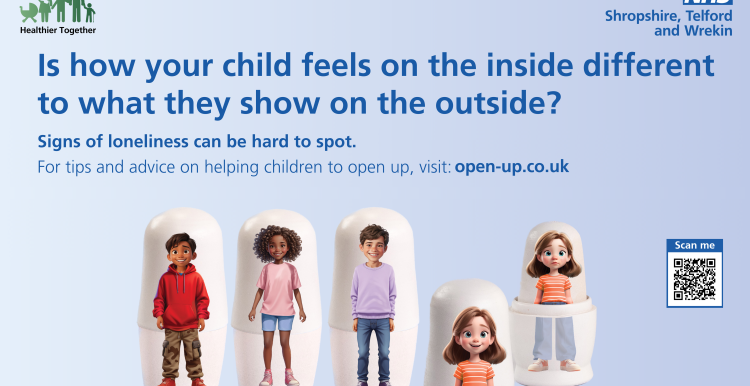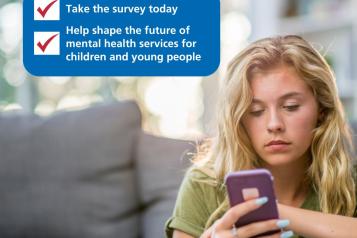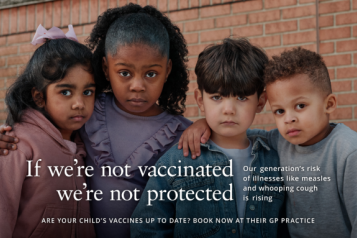‘Open up’ campaign launched to help prevent loneliness in children

The 'Open Up' campaign seeks to raise awareness about the signs of loneliness and provide practical guidance and support to parents, carers, and children on how to prevent and combat loneliness.
It comes at a time when loneliness is a growing concern, research from Sports England found that over 350,000 young people (years 7-11, aged 11-16) said they feel lonely, which the Office for National Statistics (ONS) estimates to be more than one in nine young people.
The recent survey by NHS Shropshire, Telford and Wrekin revealed that signs of loneliness can be hard to spot. According to the survey, 22% of parents and carers believed that children spending time alone is the most significant indicator of loneliness. In contrast, only 8% identified subtle behaviour changes like a lack of interest in previously enjoyed activities as being the main warning sign.
Dr Priya George, Mental Health, Children and Young People, Learning Disabilities and Autism Clinical Lead for NHS Shropshire, Telford and Wrekin, said: "Loneliness is sadly an issue a high number of children and young people are experiencing. It can have a profound impact on a child's emotional and physical health, but it can be hard to spot the signs. Children can hide how they feel, appearing happy on the outside, even if they are feeling lonely on the inside.”
The campaign recognises that children often hide their true feelings, appearing happy on the outside while struggling with loneliness internally. Recognising and addressing these feelings can help a child’s well-being.
Dr Priya George continues: “Changes in behaviour, such as sadness, withdrawal, or a loss of interest in previously enjoyed activities can all indicate loneliness in children. It's important for parents to recognise the signs and create an environment where children feel safe to ‘open-up’ and express their feelings.
“Through the ‘Open up’ campaign, NHS Shropshire, Telford and Wrekin want to raise awareness among children and adults around the signs of loneliness, the reasons why young people may feel lonely and remind children that talking to a trusted adult, such as a teacher, a coach, a parent or family member, is a brave thing to do.
"Getting support early on can prevent things from getting worse in the future.”
Several factors can contribute to loneliness in children, including life changes such as moving to a new school or house, the loss of a family member, pet, or friend, changes in family dynamics due to divorce, being bullied or excluded by peers, past trauma, and socioeconomic status.
Untreated loneliness can lead to low self-esteem, depression, and a sense of rejection. It is essential to address these feelings early to prevent a negative spiral. Encouraging children to ‘open up’ and share their feelings is a vital first step.
For more tips and advice on helping your child open up about their feelings, visit open-up.co.uk.

